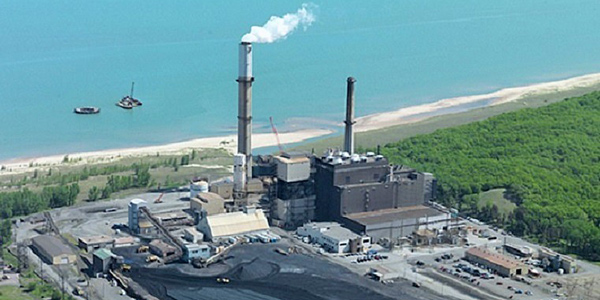By Amanda Durish Cook
Northern Indiana Public Service Co. said last week it may shut down one coal-fired plant and partially close another.
Though nothing has been finalized, NIPSCO officials said they are considering closing the two-unit Bailly Generating Station on Lake Michigan as soon as mid-2018 and idling two of the four units at the R.M. Schahfer Generating Station in Wheatfield, Ind., by 2023. NIPSCO’s plan was unveiled last week at a public meeting on its biennial integrated resource plan, which is due to the Indiana Utility Regulatory Commission on Nov. 1.
“Companies with aging coal-fired units are facing intense economic and environmental regulatory pressures that are driving important decisions today about how to meet the customer needs of tomorrow. Given these factors, we believe it may be in our customers’ best interests to retire some of NIPSCO’s coal-fired generation units,” Violet Sistovaris, NIPSCO executive vice president, said in a statement.
Sistovaris said NIPSCO would work closely with stakeholders to come up with a retirement strategy for inclusion in its IRP, which looks ahead 20 years.
The retirement dates coincide with the effective dates of EPA’s coal ash rule in 2018 and Effluent Limitations Guidelines in 2023.
NIPSCO, which has invested more than $800 million in emission-reducing technologies for its coal-fired units, said compliance with the new rules would cost an additional $1 billion over seven years if it keeps its entire coal fleet operating.
Six years ago, 90% of NIPSCO’s generation capacity was coal-fired. Today, that figure is down to 72%. NIPSCO’s portfolio includes three coal-fired plants, one natural gas–fired station, two hydroelectric plants and purchased wind power.
The closures at Bailly and Schahfer would remove about 31% of NIPSCO’s total generating capacity. Bailly’s two units opened in 1962 and 1968; Schahfer’s four units were opened over 10 years beginning in 1976.
This month, the company said it would demolish its long-dormant Gary, Ind.-based Mitchell Generating Station over the next two years for $18 million. The plant was permanently closed in 2011.






